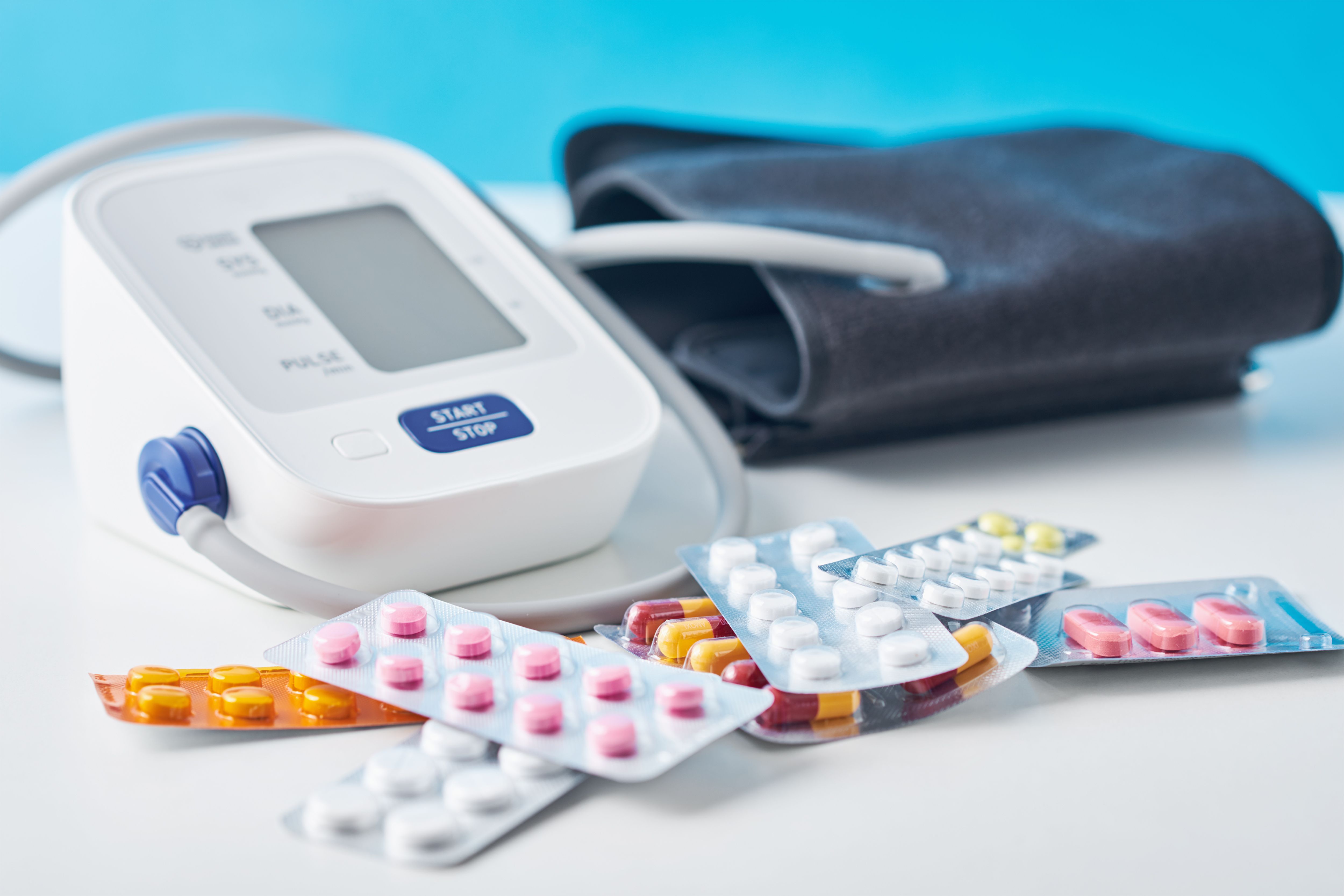Do I Have Hypertension?
Overview
- Hypertension, also known as high blood pressure, is a common condition where the force of blood against the artery walls is too high, potentially leading to serious health problems.
- Effective management includes lifestyle changes, medication, and regular monitoring to maintain healthy blood pressure levels.
- Medications like ACE inhibitors, beta-blockers, and diuretics can help manage hypertension.
Introduction
Hypertension is a prevalent condition affecting millions of people worldwide. It occurs when the blood pressure in your arteries is consistently too high, which can lead to severe health issues such as heart disease, stroke, and kidney problems. Understanding the causes, recognizing the symptoms, and knowing how to manage hypertension effectively can significantly improve your quality of life and reduce the risk of complications.

Causes of Hypertension
There are two types of hypertension: primary (essential) hypertension, which has no identifiable cause and develops gradually over time, and secondary hypertension, which is caused by an underlying condition such as kidney disease, thyroid problems, or certain medications.
Several risk factors can increase your chances of developing hypertension, including:
- Genetics: A family history of hypertension can increase your risk.
- Age: The risk of hypertension increases as you age.
- Lifestyle: Poor diet, lack of physical activity, excessive alcohol consumption, and smoking can contribute to hypertension.
- Obesity: Excess weight can lead to increased blood pressure.
- Stress: Chronic stress may contribute to hypertension.

Symptoms of Hypertension
Hypertension is often called the "silent killer" because it typically has no symptoms until it has caused significant damage to the heart and arteries. However, some people may experience:
- Headaches
- Shortness of breath
- Nosebleeds
- Flushing
- Dizziness
These symptoms are not specific to hypertension and usually appear when blood pressure has reached a dangerously high level.

Managing Hypertension
Managing hypertension involves a combination of lifestyle changes, medication, and regular monitoring. Here are some effective strategies:
- Adopt a Healthy Diet A diet rich in fruits, vegetables, whole grains, and lean proteins can help lower blood pressure. The DASH (Dietary Approaches to Stop Hypertension) diet is specifically designed to combat hypertension and includes foods high in potassium, calcium, and magnesium.
- Exercise Regularly Engaging in regular physical activity, such as brisk walking, cycling, or swimming, can help lower blood pressure and improve overall cardiovascular health. Aim for at least 150 minutes of moderate-intensity exercise per week.
- Maintain a Healthy Weight Maintaining a healthy weight is crucial for overall well-being and can significantly impact your blood pressure levels. Carrying excess weight puts additional strain on your heart and blood vessels, which can lead to higher blood pressure.
- Limit Alcohol and Quit Smoking Excessive alcohol consumption and smoking can raise blood pressure. Limiting alcohol intake and quitting smoking can improve your blood pressure and overall health.
- Manage Stress Chronic stress can contribute to hypertension. Techniques such as mindfulness, meditation, and deep breathing exercises can help manage stress levels.
- Medication In some cases, lifestyle changes alone may not be enough to control hypertension. Medications such as ACE inhibitors, beta-blockers, diuretics, and calcium channel blockers can help manage blood pressure. It is essential to follow your healthcare provider's recommendations and take medications as prescribed.
- Regular Monitoring Regular blood pressure monitoring is crucial for managing hypertension. Home blood pressure monitors can help you keep track of your levels and ensure they remain within a healthy range. Regular check-ups with your healthcare provider are also important.
Key Takeaway
Hypertension is a manageable condition with the right approach. By adopting a healthy lifestyle, taking prescribed medications, and regularly monitoring your blood pressure, you can effectively manage hypertension and reduce the risk of complications. Understanding hypertension requires a comprehensive approach that includes recognizing the importance of both prevention and treatment. Preventive measures, such as regular physical activity, a balanced diet, and avoiding smoking and excessive alcohol consumption, play a crucial role in reducing the risk of developing hypertension. Additionally, understanding the impact of stress and finding effective ways to manage it can further aid in maintaining healthy blood pressure levels. Regular health check-ups can help detect hypertension early, allowing for timely intervention and management. Healthcare providers play a vital role in managing hypertension by offering personalized advice, prescribing appropriate medications, and monitoring your progress. Regular consultations with your healthcare provider ensure that your treatment plan is effective and adjusted as needed. By understanding the causes, recognizing the symptoms, and implementing effective management strategies, you can take control of your health and reduce the risk of complications. Always consult with your healthcare provider before making any significant changes to your lifestyle or starting new treatments to ensure they are safe and appropriate for your specific needs.
References:
- https://www.who.int/news-room/fact-sheets/detail/hypertension
- https://www.cdc.gov/bloodpressure/about.htm
- https://www.mayoclinic.org/diseases-conditions/high-blood-pressure/symptoms-causes/syc-
- https://www.nhlbi.nih.gov/health-topics/high-blood-pressure
- https://www.heart.org/en/health-topics/high-blood-pressure/the-facts-about-high-blood-pressure
- https://www.nhlbi.nih.gov/education/dash-eating-plan
- https://www.health.harvard.edu/heart-health/exercise-and-the-heart
- https://www.webmd.com/hypertension-high-blood-pressure/ss/slideshow-lower-blood-pressure
- https://www.ncbi.nlm.nih.gov/pmc/articles/PMC1071394/
- https://www.healthline.com/health/stress-and-hypertension
- https://www.heart.org/en/health-topics/high-blood-pressure/changes-you-can-make-to-manage-high-blood-pressure/medications-for-high-blood-pressure
- https://www.webmd.com/hypertension-high-blood-pressure/guide/hypertension-treatment-overview
- https://www.cdc.gov/bloodpressure/measure.htm